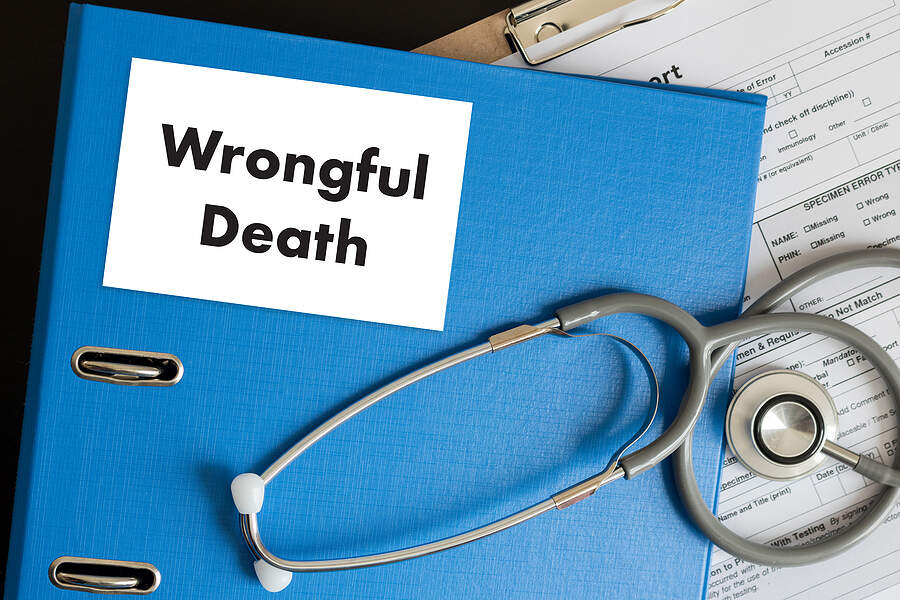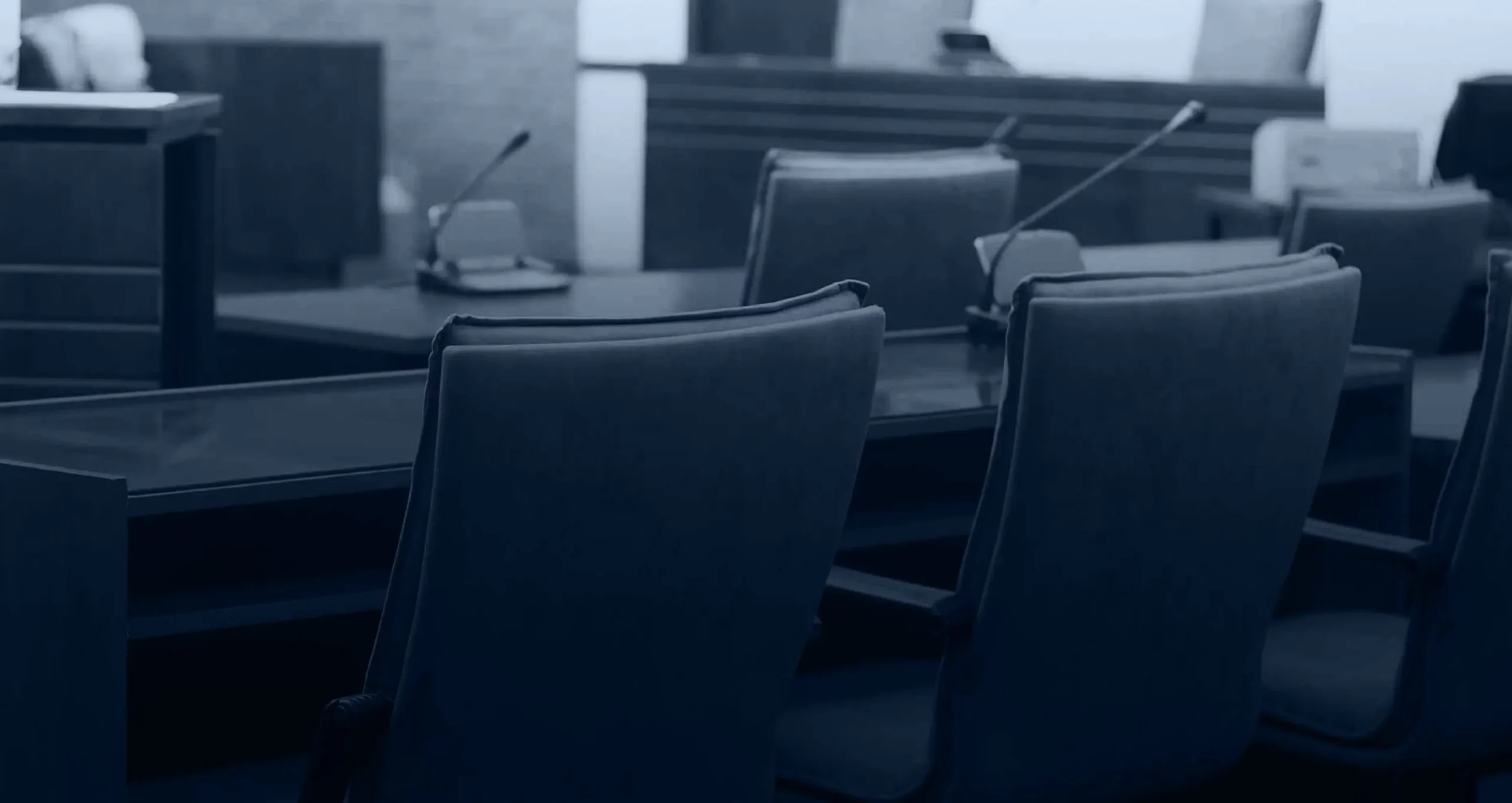If you lost a loved one due to another party’s negligence, you might wonder, “What do I need to prove wrongful death?” You may know that your loved one died because someone else committed a dangerous or negligent act that led to an accident. Still, the party that caused the incident may not automatically offer you the compensation you may reasonably deserve.
Suppose your loved one died due to another party’s negligent actions. In that case, a wrongful death lawyer can help you effectively determine who likely bears liability for your loved one’s death and help you collect the evidence you need to establish proof.
The party that caused your loved one’s accident bore a duty of care to your loved one.

To have grounds for a wrongful death claim, you must first establish that the negligent party that caused your loved one’s death bore some duty of care to your loved one.
A duty of care, in a wrongful death claim, involves any duty to provide a reasonable degree of safety to other people or to take actions that should reasonably prevent injury or death.
- On the road, for example, each driver bears a duty of care to other drivers, pedestrians, cyclists, and anyone else who shares the road. Those drivers must take steps to behave as safely as possible out on the road, including keeping their attention on the road, maintaining a safe speed, and adhering to the rules of the road.
- On many private and commercial properties, the property owner bears a duty of care to anyone who lawfully visits that property. The property owner may have a duty to reasonably maintain that property, warn visitors about any potential hazards they might face, and take necessary steps to reduce the risk of injury to any property visitors.
- At work, employers bear a high duty of care to ensure employee safety. Employers may need to follow basic safety precautions, including OSHA regulations, to ensure that employees do not face undue dangers while doing their usual job tasks.
- A medical care provider bears a strong duty of care to every patient in his care. In addition, hospitals bear a duty of care to their patients. Doctors must provide a high standard of care to their patients and endeavor to avoid any harm to those patients during treatment.
The party that caused the accident violated that duty of care.
Violations of the duty of care can depend on the specific duty that the liable party bore to your loved one at the time of the incident and the type of responsibility the liable party might have had to your loved one.
To show that you have grounds for a wrongful death claim, you will need to work with an attorney to establish that the liable party violated the duty of care in some way.
- On the road, a driver might violate the duty of care by driving while distracted, exceeding a reasonable speed limit, or driving while intoxicated. A driver might also violate the duty of care by driving aggressively. In addition, a driver’s employer might violate the duty of care by failing to adequately track a driver’s behaviors or time on the road, which could cause the employer to miss dangerous driving behaviors that can result in substantial injury to others.
- A property owner might violate the duty of care by failing to take care of essential maintenance on the property, like updating the stairs or taking care of any potential items that might fall on a visitor’s head. A commercial property owner might violate the duty of care by failing to take care of cleaning up a spill promptly. In addition, property owners may need to carefully maintain their parking lots or keep up with outdoor maintenance, like salting sidewalks in the winter to give visitors a safe place to walk.
- An employer might violate its duty of care to an employee by failing to offer adequate safety equipment or pressuring an employee to complete tasks without taking proper safety precautions. Employers may also bear liability when they fail to provide their employees with adequate training on safety procedures.
- Medical providers might violate the duty of care by failing to provide their patients with a high standard of care. Medical care providers may, for example, violate the duty of care by failing to accurately diagnose a patient despite the patient presenting with clear, obvious symptoms of a specific ailment or by failing to follow the recommended treatment protocol for a specific ailment. A hospital or medical facility might violate the duty of care by failing to properly screen doctors or ensure that nurses have received the training they may need to take care of patients in potentially critical conditions.
A duty of care violation does not necessarily involve a direct, obvious act of negligence, like an employer choosing not to update safety equipment. Often, a duty of care violation will occur through simple inattention or negligence. For example, a property owner who fails to keep track of needed maintenance might not commit a deliberately dangerous act. However, that negligence can still lead to severe injuries for visitors to the property.
The duty of care violation led to a serious accident that directly led to your loved one’s death.
To file a wrongful death claim, you must establish that you lost a loved one due to another party’s negligent actions. Many acts of negligence or violations of the duty of care to another party do not result in injury or death.
For example, suppose a driver speeds along while staring down at his phone. If another vehicle pulls abruptly out of the way but does not collide with the distracted driver or with anything else, and the incident does not result in a fatal accident, the impacted driver would not have the right to file a wrongful death claim. On the other hand, if the distracted driver collides with another vehicle, pedestrian, or cyclist or causes an accident due to that negligent act, and the collision results in death, the surviving family might have the right to file a wrongful death claim.
In many cases, a lawyer can identify multiple factors that may have contributed to the death of your loved one. As a family, you may have the right to file a wrongful death claim against each party involved in your loved one’s death. Your lawyer can help you establish what factors most likely contributed to your loved one’s death so that you can file a claim.
Time of Death After an Accident
Sometimes, your loved one might survive the original circumstances that led to the accident but ultimately die of those injuries. Your loved one may spend days or, in some cases, weeks, in the hospital but ultimately succumb to those injuries. Your loved one might ultimately die of an infection related to the injuries caused in an accident or of a related condition or complication. You still have the right to file a wrongful death claim, regardless of how long it took your loved one to die of those injuries.
Establishing Your Right to File a Wrongful Death Claim
To file a wrongful death claim, you must show both that you have the right to file a wrongful death claim based on the conditions that led to your loved one’s death and a right due to your close family relationship with the deceased.
After the loss of an individual due to someone else’s negligence, each family will generally have the right to file just one wrongful death claim against each party that caused or contributed to the accident. Whether you have the right to file that claim will depend on your relationship with the deceased, as the person or people with the closest familial relationship will have the right to file the claim.
If the deceased had a spouse at the time of death, the deceased’s spouse would have the first right to file a wrongful death claim. If the deceased does not have a spouse, the deceased’s children will have the right to file a claim. In cases where the deceased has no spouse or children, the deceased’s parents may have the right to file a claim.
Sometimes, in cases where no close family members exist, the deceased’s estate will have the chance to file a claim to help recover some compensation for the deceased’s loss and any final expenses.
How to Prove Wrongful Death After the Loss of a Loved One
If you lost your loved one due to an act of negligence committed by another party, you might have the right to file a compensation claim. However, you must prove that your loved one died due to those negligent actions.
Step One: Contact an attorney.
Start by contacting an attorney to look over your case and learn more about the cause of your loved one’s death. An attorney can help you learn more about your rights and what you may need to prove to file a wrongful death claim. In addition, an attorney can help you navigate the claim process to maximize the compensation you can recover as much as possible.
An attorney can also prove essential as you collect evidence about losing a loved one. In many cases, you may need to lay out what act of negligence caused your loved one’s death, including what steps the liable party should reasonably have taken to prevent your loved one’s death. An attorney can help put together those critical elements of your claim.
Step Two: Let the attorney deal with the insurance company.
Losing a loved one can cause chaos and confusion in many areas of your life. You may find yourself fielding several phone calls as you make arrangements. During that process, you may get an initial contact from the insurance company. In some cases, the insurance company may accept liability on behalf of the party it covers and let you know that you have the right to compensation.
However, the insurance company may issue a settlement offer that does not reflect the compensation you deserve for losing a loved one. A lawyer can help you navigate those offers and lay out the compensation you expect.
Step Three: Collect relevant evidence.
Your attorney can guide you through what evidence you most need to establish that the other party caused your loved one’s death. You may need to collect a copy of an auto accident report, your loved one’s hospital records, or employment records that show where your loved one worked at the time of a fatal workplace accident. Collect that evidence promptly. You may also want to keep track of any final bills related to your loved one’s death, including final medical expenses.
Contact an Attorney for Help Establishing Your Right to a Wrongful Death Claim
If you lost a loved one due to another party’s negligence, you might have the right to file a wrongful death claim. An attorney can help answer your questions and guide you through that complicated process.
Contact an attorney as soon after your loved one’s death to receive comprehensive legal support that will give you more information about your rights, your next steps, and the compensation your family may deserve.
Contact the Chicago Wrongful Death Law Firm of Zayed Law Offices Personal Injury Attorneys for Help Today
For more information, please contact the experienced Chicago wrongful death lawyers at Zayed Law Offices Personal Injury Attorneys today. We offer free consultations.
We proudly serve Cook County, Will County, Kendall County, and its surrounding areas:
Zayed Law Offices Personal Injury Attorneys – Chicago Office
10 S La Salle St STE 1230, Chicago, IL 60603
Phone:(312) 726-1616
Hours: Open 24/7
Our firm is located near you. We have an office in Chicago
Find us with our GeoCoordinates: 41.8815493,-87.6327515
Zayed Law Offices Personal Injury Attorneys – Joliet Office
195 Springfield Ave, Joliet, IL 60435
Phone: (815) 726-1616
Our firm is located near you. We have an office in Joliet
Find us with our GeoCoordinates: 41.5254295,-88.1381011













